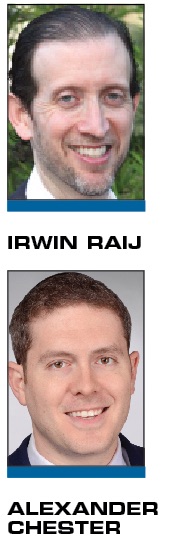A federal court in September ruled that the Los Angeles Rams will have to allow some former owners of St. Louis personal seat licenses the opportunity to purchase season tickets in their new California stadium, while other former PSL owners will be refunded their deposits for such PSLs. The ruling provides a lesson on the drafting of PSL agreements.
A PSL grants a fan an exclusive license to purchase season tickets for a given seat in a stadium. A majority of NFL stadium deals have included PSLs in the last 20 years, and teams consider PSLs an important source of contractually obligated income.
The Rams moved to St. Louis in 1995 and sold approximately 46,000 PSLs for their new dome, generating total revenue of up to $74 million. When the Rams announced in January 2016 that they were moving from St. Louis back to California, three lawsuits were filed by fans against the team. In the first two, the plaintiffs argued that the Rams should continue to honor their PSL agreements by allowing them to purchase tickets in any new Rams stadium, while the team argued that the PSL agreements were no longer in effect by virtue of the team’s move west. In the third, the plaintiffs argued that if the team had terminated the contracts by moving the team to California, then they were due refunds on their deposits.
PSLs for the St. Louis Rams were sold via two methods: the initial PSLs were issued by the Rams’ ticketing agent, Fans Inc., while the team later sold PSLs directly. The Fans Inc. and Rams contracts were nearly identical, and both stated that “if the Rams play any of their games other than at the Dome, they will use their best efforts to assure the PSL holder the right to purchase tickets for seats in the stadium where the transferred games are played.” The Fans Inc. agreements further stated that the agreements would “remain valid only as long as NFL football is played at the Dome by the Rams, up to a maximum of 30 years.” (This language inexplicably was not included in the Rams agreements.)
 |
The St. Louis Rams’ strategic and financial decision to offer 30-year personal seat licenses in the mid-1990s is costing them two decades later.
Photo by: GETTY IMAGES
|
The term “transferred games” was not defined in the agreements, so in the first two lawsuits, the fans argued it meant anywhere the Rams play during the 30-year term of the agreement, including Los Angeles. But the Rams argued that it referred to games that would be temporarily transferred from the former Edward Jones Dome to another St. Louis-area stadium due to natural disaster or the like. The court ruled that the Fans Inc. agreements terminated pursuant to their terms because the Rams no longer play at the Dome, but the Rams agreements do not, and thus anyone who purchased a PSL from the Rams has a right to season tickets at their new stadium in Los Angeles.
In the third lawsuit, the fans claimed that the agreements were terminated and the team was in breach by not refunding the PSL owners, since the agreements stated that the team “expressly reserves the right to terminate the agreement and refund part of all of the PSL owner’s deposit for any reason satisfactory to the team in its sole discretion.” The Rams argued that the agreements terminated when the Rams moved, and all provisions terminated as well, including the obligation to refund the deposits. The court rejected the Rams argument, and as it ruled vis-à-vis the first two lawsuits, the Fans Inc. contracts terminated once the team no longer was playing football at the Dome, so Fans PSL holders are entitled to a refund.
Because the plaintiffs brought the case on behalf of the class of all PSL holders, the ruling affects not just these plaintiffs but potentially all of the tens of thousands of St. Louis Rams PSL holders, some of whom are entitled to purchase tickets in Los Angeles, while the rest are entitled to refunds of their deposits.
The fact that the team issued 30-year PSLs may have been their first mistake. One of the reasons teams prefer PSLs as a revenue generator is because they generally have short terms (such as five years), which may decrease the value in the short term, but will allow the teams to reclaim the seats and sell new licenses later, generating new income as a stadium ages. The Rams presumably decided to offer 30-year PSLs because they could charge more for them up front. That strategic decision has now cost them. The refund alone could cost the team millions of dollars. But it is the limit on the number of PSLs that can now be sold in Los Angeles that could have a greater impact. The cost for PSLs in the San Francisco 49ers’ new stadium is $2,000 to $80,000, which is a floor for what the Rams could charge in Los Angeles.
Shorter-term PSLs with clear language that the holders’ rights expire upon termination, which should be defined to include termination of the team’s occupation of the stadium for which the PSLs are sold, is the base standard moving forward. It is unlikely that many St. Louis Rams fans studied the language in their PSLs before executing them, so the Rams probably could have saved themselves these troubles. Instead, they serve as a lesson for teams using PSLs in the future.
Irwin Raij (iraij@foley.com) is a partner at Foley & Lardner and co-chair of its Sports Industry Team. Alexander Chester (achester@foley.com) is an associate at Foley & Lardner and a member of its Sports Industry Team.





